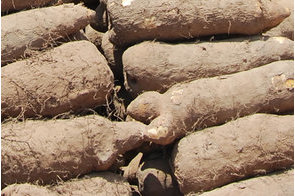Latest News
Amid Covid-19 lockdown, Nigeria’s inflation rises to 12.34 per cent

News Highlight
On a month-on-month basis, the food sub-index increased by 1.18 per cent last month, up by 0.24 percentage point, from 0.94 per cent in March.
Data released today by the National Bureau of Statistics (NBS) shows that Nigeria’s Consumer Price Index (CPI) rose by 12.34 per cent, on annualised basis, in April 2020. The new rate of inflation is 0.08 percentage point higher than the rate recorded in the previous month, which was 12.26 per cent.
The CPI, which measures the general rise in prices, posted the higher number in the month of April when the country was in lockdown by the orders of the federal and state governments to contain the spread of the Covid-19 pandemic.
According to the NBS, increases were recorded in all the Classification of Individual Consumption by Purpose (COICOP) divisions that yielded the latest headline index. The index increased by 1.02 percentage points in April, compared with a month earlier.
The urban inflation rate increased by 13.01 per cent on annualised basis in April 2020, from 12.93 per cent recorded a month earlier, while the rural inflation rate increased by 11.73 per cent last month from 11.64 per cent in the previous month.
On a month-on-month basis, the urban index rose by 1.06 per cent in April, compared with 0.88 per cent in March, while the rural index also rose by 0.98 per cent last month from 0.80 per cent in the previous month.
On annualised basis, the composite food index rose by 15.03 per cent in April, compared with 14.98 per cent in March. According to the new inflation data, the rise in the food index was caused by increases in the prices of food items, including potatoes, yam and other tubers, bread and cereals, fish, oils and fats, meat, fruits, and vegetables.
On a month-on-month basis, the food sub-index increased by 1.18 per cent last month, up by 0.24 percentage point, from 0.94 per cent in March.
Related News
Latest Blogs
- What is most important for Nigeria in 2026
- Restoring asset declaration as a tool of public accountability
- Tackling antibiotic resistance through safer food systems
- Big government, little governance
- What will matter in Nigeria in 2026
Most Popular News
- Pan-African nonprofit appoints Newman as Advisory and Executive Boards Chair
- NDIC pledges support towards financial system stability
- Artificial intelligence can help to reduce youth unemployment in Africa – ...
- Abebe Aemro Selassie to retire as Director of African Department at IMF
- Dollar slumps as Fed independence comes under fire
- UN adopts new consumer product safety principles







